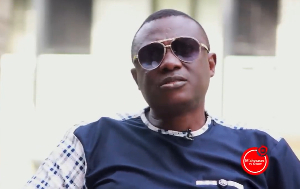Pearl Asomaning Kemajou, former Student Representative Council (SRC) Secretary of the University of Ghana has promised to lobby former President John Dramani Mahama to abolish luxury tax within the first six months of the NDC’s tenure in 2021.
“The reason is simple; this is the most confusing tax ever. It also has the potential to deprive port cities like Tema, the needed revenue since the heavy taxing of the luxurious cars naturally deter people from buying such cars and therefore lead to a reduction in revenue for the port cities like my own Tema,”.
In a statement copied to the Ghana News Agency on Friday, Mrs Asomaning, who is also a Social Activist said should the former President win the 2020 polls, that would be her main focus for the first six months.
Her comment comes in the wake of the NDC Flagbearer’s announcement that he would scrap the luxury car tax if he was elected President in 2020.
Speaking to drivers and traders alike during a tour of bus terminals in Accra, the former President pointed out that the tax was ambiguous and ineffective.
According to him, in spite of the burdensomeness of the tax, the government had succeeded in raising just a little revenue from it.
“Not too long ago, the government introduced the luxury vehicle tax. This tax was not well thought through before it was rolled out. They should have exempted all commercial vehicles. There are commercial vehicles without the yellow plates, but rather white plates yet they carry commercial goods. Once they exceed three litres, they are charged this luxury tax. This has brought untold hardship on some of the drivers especially those who work for the companies and others.
“Just recently, I heard that government has only been able to raise GHC 25million from the luxury tax if that is the case, then they should abolish it. If they don’t, we the NDC government will abolish it when we come into power,” Mr. Mahama said.
Mrs Kemajou said she perfectly agreed with the former President that the law needed to be abolished.
The tax affects all vehicles including; commercial vehicles, farm tractors, pick up vehicles among others.
The government has collected GH¢21.3 million in taxes from the use of vehicles with engine capacities of 2.9 litres and between August and December last year, provisional fiscal data on public finances for last year has shown.
The amount is GH¢82.7 million or 79.52 per cent below the GH¢104million that was projected to be collected within the period in the 2018 mid-year budget review.
Politics of Saturday, 27 April 2019
Source: ghananewsagency.org

















